Which Essential Oils Have Menthol
Curious about the benefits of essential oils containing menthol?
We explore the uses and advantages of essential oils like peppermint, eucalyptus, and lavender. Find out how these oils can provide relief for pain, respiratory issues, and skincare concerns. Whether you need headache relief or a natural insect repellent, these essential oils with menthol have you covered.
Stay tuned to learn more about the versatile benefits of these aromatic oils.
Key Takeaways:
What is Menthol?
Menthol is a compound often derived from peppermint or other mint oils and is widely used in various industries, including pharmaceutical companies for its medicinal and therapeutic properties.
Originating from the mint family, menthol has been utilized for centuries due to its cooling sensation and distinct aroma. The extraction process involves harvesting mint leaves, where the menthol crystals are isolated through a distillation process. These crystals are then further purified to ensure a high concentration of menthol for various applications.
- In the pharmaceutical sector, menthol is frequently incorporated into products such as cough drops, ointments, and topical creams for its soothing effects on the respiratory system and skin.
- The food and beverage industry utilizes menthol in products like chewing gums, candies, and teas to impart a refreshing and minty flavor.
- Cosmetic companies incorporate menthol into skincare products like lotions and balms for its cooling properties, providing a calming sensation when applied.
What are Essential Oils?
Essential oils are concentrated liquids extracted from plants, known for their aromatic properties and widely used in skincare, dental care, and personal care products for their natural benefits.
The extraction methods of essential oils vary depending on the plant source, with popular methods including steam distillation, cold pressing, and solvent extraction. Each method preserves the unique properties and benefits of the plant material, resulting in oils that are packed with natural compounds.
One of the most important aspects of essential oils is their versatility in skincare from reducing acne to soothing irritated skin, these oils offer a holistic approach towards skin health. In dental care, essentials oils like tea tree and peppermint are known for their antibacterial properties, offering a natural alternative to traditional oral products. The soothing and calming effects of essential oils make them popular ingredients in personal care products, such as bath oils, shampoos, and perfumes.
What are the Benefits of Using Essential Oils?
Using essential oils can provide a range of benefits, including promoting skin health, alleviating respiratory problems, and enhancing mental well-being.
In terms of skincare, essential oils are known for their antibacterial and anti-inflammatory properties, making them useful in combating acne, eczema, and other skin conditions. These oils can help balance skin moisture levels, prevent signs of aging, and promote a radiant complexion.
In terms of respiratory health, certain essential oils like eucalyptus and peppermint are effective in soothing congestion, clearing nasal passages, and relieving coughs. Their expectorant properties can ease breathing difficulties and promote overall respiratory well-being.
The aromatic compounds of essential oils have a direct impact on mental health by triggering the brain’s limbic system, which regulates emotions and memories. This can lead to reduced stress levels, improved mood, and enhanced focus, making essential oils a valuable tool for mental well-being.
What are the Different Ways to Use Essential Oils?
There are several methods to use essential oils, such as aromatherapy, topical application, and incorporation into personal care products like lotions and mouthwashes.
Essential oils are widely known for their therapeutic properties, with each oil offering unique benefits. In aromatherapy, diffusing essential oils can help create a relaxing or energizing atmosphere, depending on the oil used. Topical application involves diluting essential oils with a carrier oil and applying them directly to the skin for purposes like soothing muscle aches or promoting healthy skin. When integrated into personal care items, such as shampoos or soaps, essential oils can enhance not only the fragrance but also the potential benefits for hair and skin health.
Which Essential Oils Contain Menthol?
Various essential oils contain menthol, with peppermint oil being one of the most well-known sources due to its high menthol content derived from the Mentha piperita plant.
-
Peppermint oil is extracted through a process called steam distillation, which involves the steaming of the peppermint leaves and then collecting the condensed steam. This method helps preserve the delicate balance of compounds in the oil, ensuring its potency. The strong, refreshing aroma of peppermint oil is invigorating and widely used in aromatherapy for its energizing properties.
-
Plus peppermint oil, other essential oils rich in menthol include spearmint oil, eucalyptus oil, and cornmint oil. These oils offer various benefits, such as soothing sore muscles, alleviating headaches, and improving focus and mental clarity.
Peppermint Oil
Peppermint oil is a popular essential oil known for its minty fragrance and numerous benefits, including freshening breath and promoting oral health.
Derived from the peppermint plant, this versatile oil is widely used in aromatherapy, cosmetics, and natural remedies. Its invigorating scent can uplift the mood and provide a cooling sensation when applied topically. In oral care, peppermint oil is valued for its ability to fight bacteria that cause bad breath, making it a common ingredient in toothpaste, mouthwashes, and breath fresheners. This oil can aid in digestion and relieve muscle tension when diluted and massaged onto the skin.
Eucalyptus Oil
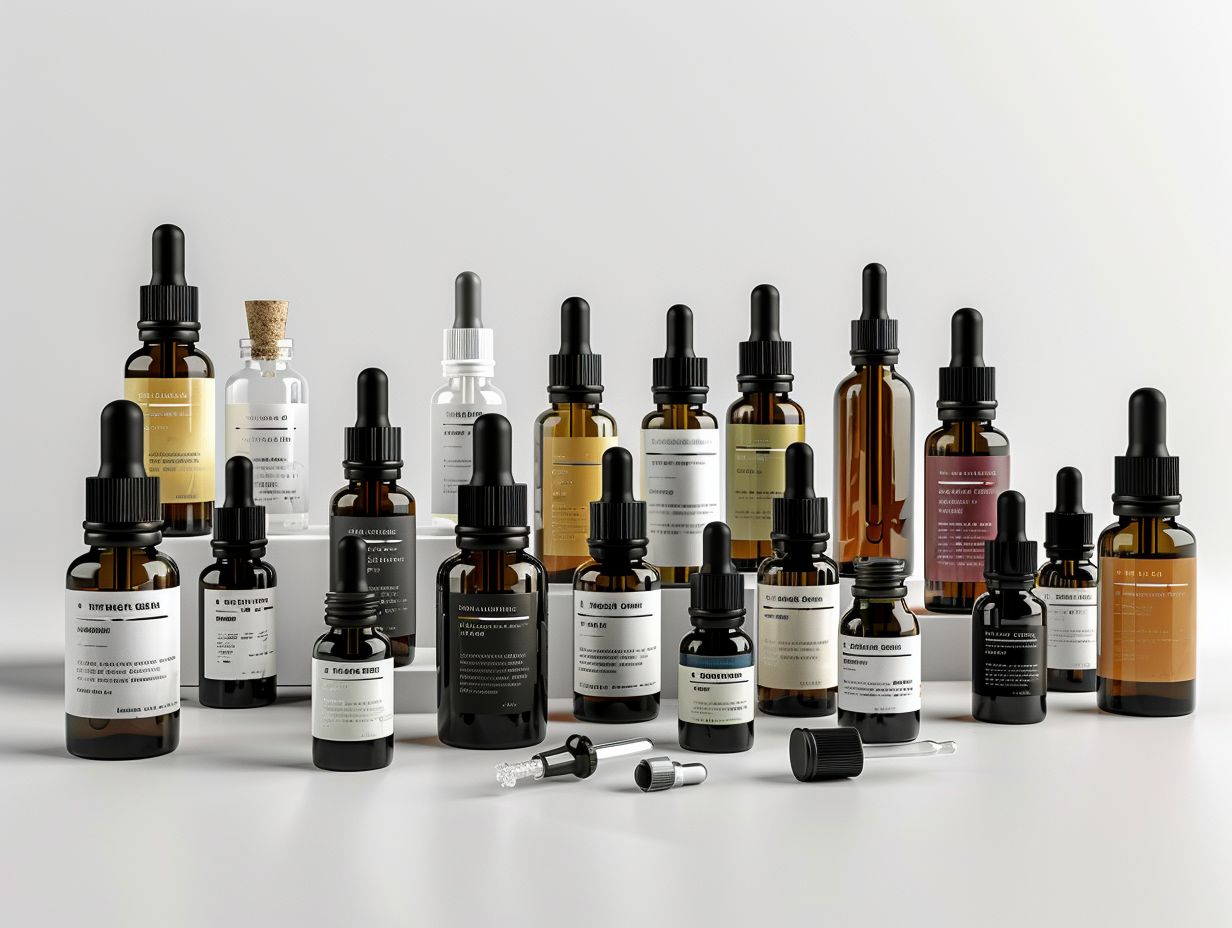
This essential oil has been used for centuries by various cultures for its medicinal properties. The steam distillation process involves passing steam through the eucalyptus leaves, capturing the volatile oils that contain the therapeutic compounds. Once extracted, eucalyptus oil is commonly used in aromatherapy to alleviate congestion, coughs, and sinus issues. This oil is known for its decongestant and expectorant properties, making it a popular natural remedy for respiratory ailments.
Spearmint Oil
Spearmint oil is commonly used in dental care products such as mouthwashes for its refreshing taste and potential oral health benefits.
The antimicrobial properties of spearmint oil make it an effective ingredient in combating bacteria that can cause bad breath and plaque buildup. Its natural cooling sensation can provide relief for those with gum sensitivity or inflammation. Spearmint oil is also known to enhance the overall freshness of breath, leaving a long-lasting minty flavor. Its ability to freshen breath and promote a clean feeling in the mouth makes it a popular choice in oral care products.
Wintergreen Oil
Wintergreen oil is known for its medicinal properties, especially for pain relief due to its analgesic and anti-inflammatory effects when applied topically.
When wintergreen oil is applied to the skin, it can help alleviate muscle aches, joint pains, and even headaches, making it a popular natural remedy for various discomforts. Its soothing properties can also aid in reducing inflammation, providing relief for conditions such as arthritis and tendonitis.
Plus its pain-relieving abilities, wintergreen oil is believed to have antimicrobial properties that can help combat certain skin infections and promote healing. This essential oil is commonly used in aromatherapy for its refreshing and uplifting scent, which can also contribute to stress reduction and relaxation.
Cornmint Oil
Cornmint oil is utilized in manufacturing processes and the production of various products, requiring careful shipping and handling due to its aromatic nature.
One of the key industrial applications of cornmint oil is in the cosmetics and personal care industry, where it serves as a key ingredient in soaps, lotions, and perfumes. Its refreshing minty scent adds a distinct fragrance to these products. The food and beverage industry also utilizes cornmint oil in the production of flavorings, chewing gum, and candies, imparting a cool and minty taste.
In terms of shipping cornmint oil, special considerations need to be taken into account to ensure its quality and integrity. This essential oil is sensitive to temperature and light, requiring proper packaging that protects it from exposure. Proper labeling and documentation are crucial for compliance with regulations and safe transportation.
Pennyroyal Oil
Pennyroyal oil is valued for its distinctive fragrance and is commonly used as a natural insect repellent due to its strong scent that deters pests.
This essential oil is renowned for its aromatic properties, emitting a minty and slightly citrusy scent that not only masks human odors but also repels mosquitoes, fleas, and other bothersome insects. Many outdoor enthusiasts and gardeners favor pennyroyroyal oil as a safe and effective alternative to chemical-based repellents. Its natural components act as a shield against unwanted pests without the harmful effects of synthetic ingredients.
Lavender Oil
Lavender oil is renowned for its therapeutic benefits, promoting relaxation, reducing stress, and aiding in sleep quality through its calming properties.
One of the key reasons for lavender oil’s effectiveness in relaxing the mind and body lies in its ability to interact with the nervous system, particularly by enhancing the production of gamma-aminobutyric acid (GABA), a neurotransmitter that helps calm the brain.
This neurotransmitter plays a vital role in reducing feelings of anxiety, stress, and promoting a sense of calmness. Lavender oil’s soothing aroma can help lower heart rate and blood pressure, creating a peaceful ambiance that encourages relaxation and mindfulness.
Lemon Oil
Lemon oil, with its refreshing citrus scent, is often incorporated into air conditioning systems or diffusers to impart a clean and invigorating aroma to indoor spaces.
When used in air conditioning, lemon oil can help neutralize odors and create a more pleasant environment for occupants. Its natural antibacterial properties also contribute to purifying the air and potentially reducing airborne germs and bacteria. In aromatherapy, lemon oil is valued for its mood-boosting effects, promoting mental clarity and relaxation. Diffusing lemon oil can uplift the spirits and enhance focus, making it a popular choice for creating a bright and welcoming atmosphere in homes or offices.
Tea Tree Oil
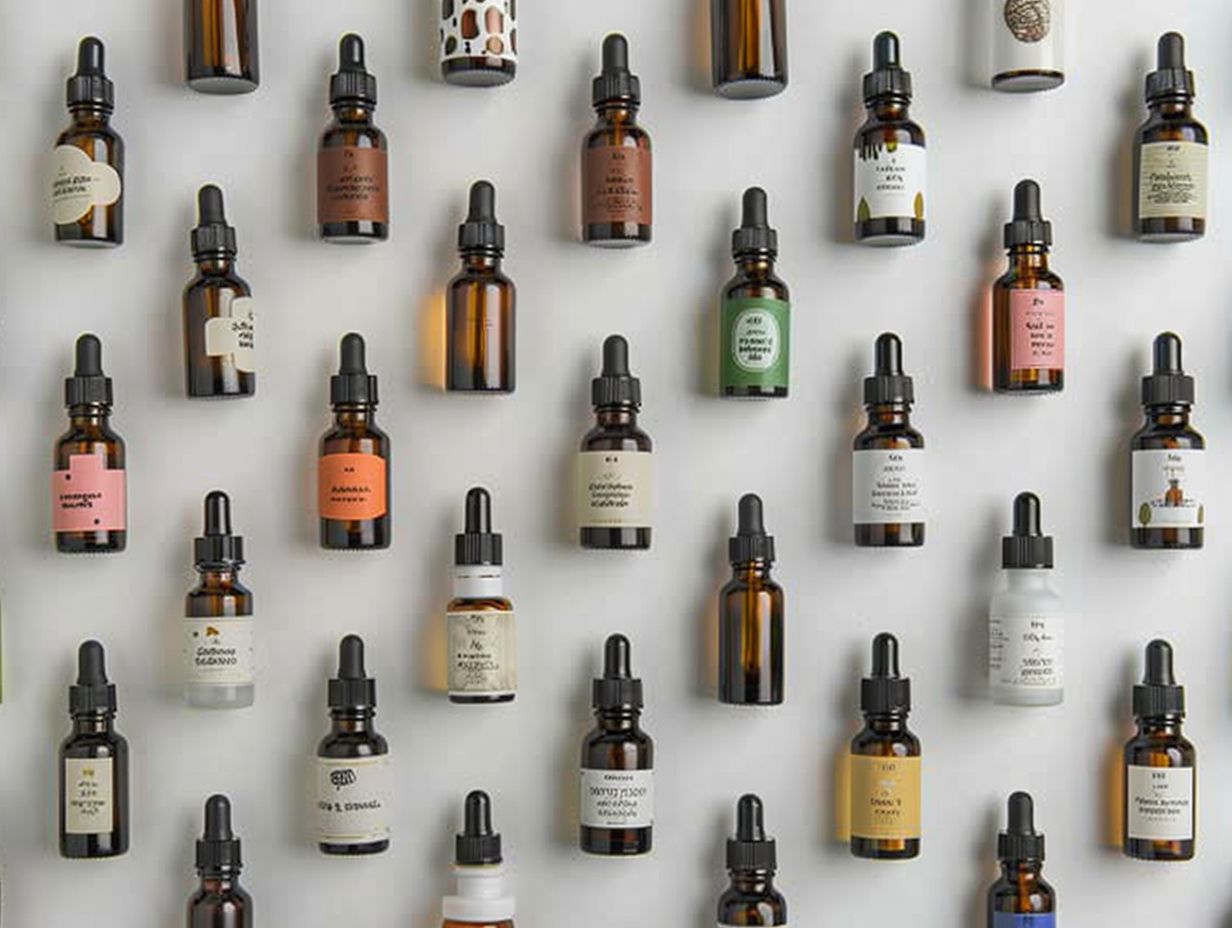
Tea tree oil is widely recognized for its skincare benefits, known for its antibacterial properties that help in treating acne and various skin conditions.
Its natural ability to combat bacteria makes it a popular choice in addressing skin issues such as blemishes, redness, and inflammation. Tea tree oil’s astringent properties can help in tightening pores and controlling excess oil production, making it a versatile and effective ingredient in skincare products.
- Its soothing properties can provide relief for skin irritations and mild sunburns.
- When used correctly, tea tree oil can be a great addition to a skincare routine for maintaining clear and healthy skin.
Rosemary Oil
Rosemary oil is commonly used in hair care products for its camphor-like aroma and potential benefits for scalp health and hair growth stimulation.
The camphor scent of rosemary oil not only adds a refreshing aroma to hair products but also has antibacterial properties that can help with scalp issues such as dandruff and itchiness.
The stimulating effects of rosemary oil on blood circulation in the scalp can promote hair follicle health, leading to stronger and healthier hair growth.
What are the Uses of Menthol in Essential Oils?
Menthol, a key component in peppermint oil, is widely used in essential oils for its pain-relief properties, respiratory health benefits, skincare applications, and more.
In terms of pain relief, menthol is known for its cooling effect, making it a popular choice for soothing sore muscles, headaches, and joint discomfort. Its ability to stimulate cold receptors in the skin provides a numbing sensation, offering temporary relief from discomfort.
In terms of respiratory health, menthol s invigorating aroma can help clear nasal passages, making it a common ingredient in inhalers and chest rubs to alleviate congestion and promote easier breathing. The refreshing scent of menthol also provides a sense of clarity during times of respiratory discomfort.
Menthol’s antimicrobial properties make it a beneficial component in skincare products, aiding in soothing irritated skin, reducing itchiness, and providing a refreshing sensation. Its soothing properties also extend to treating sunburns, insect bites, and minor skin irritations.
Plus its topical applications, menthol is utilized in aromatherapy for its calming and uplifting effects, contributing to stress relief and mental clarity. Whether it’s in a massage oil, diffuser blend, or bath salt, the presence of menthol can create a rejuvenating environment that promotes relaxation and emotional well-being.
Pain Relief
Menthol’s cooling effect makes it a popular choice for pain relief products like lotions and balms, offering soothing relief for sore muscles and joints.
When applied topically, menthol works by stimulating cold-sensitive receptors in the skin, which can help override the sensation of pain. This mechanism effectively distracts the brain from registering the discomfort, making it an effective temporary pain reliever. Plus its analgesic properties, menthol also acts as a vasodilator, which can improve blood flow to the affected area, further aiding in reducing inflammation and accelerating the healing process. These qualities have made it a go-to ingredient in various skincare and pain relief formulations, providing a dual benefit of soothing relief and skin nourishment.
Respiratory Health
Menthol’s decongestant properties are beneficial for respiratory health, as seen in products like Vicks vapor rub, which help alleviate nasal congestion and ease breathing.
When inhaled or applied topically, menthol creates a cooling sensation that can provide instant relief from a stuffy nose and sinus pressure. This natural compound acts as a mild anesthetic, soothing irritated respiratory passages and dilating airways to facilitate easier breathing. Menthol is known for its ability to clear mucus and phlegm, making it an effective tool in combating common respiratory issues such as colds, allergies, and even asthma.
By targeting the congestion that often accompanies respiratory problems, menthol helps individuals experience improved airflow and reduce the discomfort associated with breathing difficulties. Not only does menthol offer physical relief, but its invigorating aroma also plays a role in mental clarity and alertness, helping individuals combat fatigue and mental exhaustion during times of illness.
Skin Care
Menthol’s antiseptic properties make it suitable for skincare, but a patch test is advised before using products containing menthol to prevent skin irritation.
In terms of skincare, leveraging the capabilities of menthol can offer numerous benefits for your skin. Its antiseptic properties not only help in combating bacteria and germs on the skin’s surface but also work effectively in soothing irritation and inflammation. Additionally, menthol is known for its cooling sensation, making it a popular ingredient in products like balms, lotions, and cleansers.
It’s essential to remember that menthol may not agree with everyone’s skin. Patch testing is crucial before incorporating any product containing menthol into your skincare routine. This simple step can help prevent potential allergic reactions or sensitivities that some individuals may experience.
Headache Relief
Menthol’s cooling sensation can provide headache relief when applied topically on the temples or forehead, offering a natural remedy for mild to moderate headaches.
This natural compound works by triggering cold-sensitive receptors in the skin, producing a numbing effect that can help alleviate pain and discomfort associated with headaches. Menthol’s analgesic properties can help to reduce inflammation and relax tense muscles in the head and neck area, further aiding in headache relief. When combined with other soothing ingredients such as lavender or peppermint, menthol-based products can offer a holistic approach to managing headaches, providing both immediate relief and a sense of relaxation.
Insect Repellent
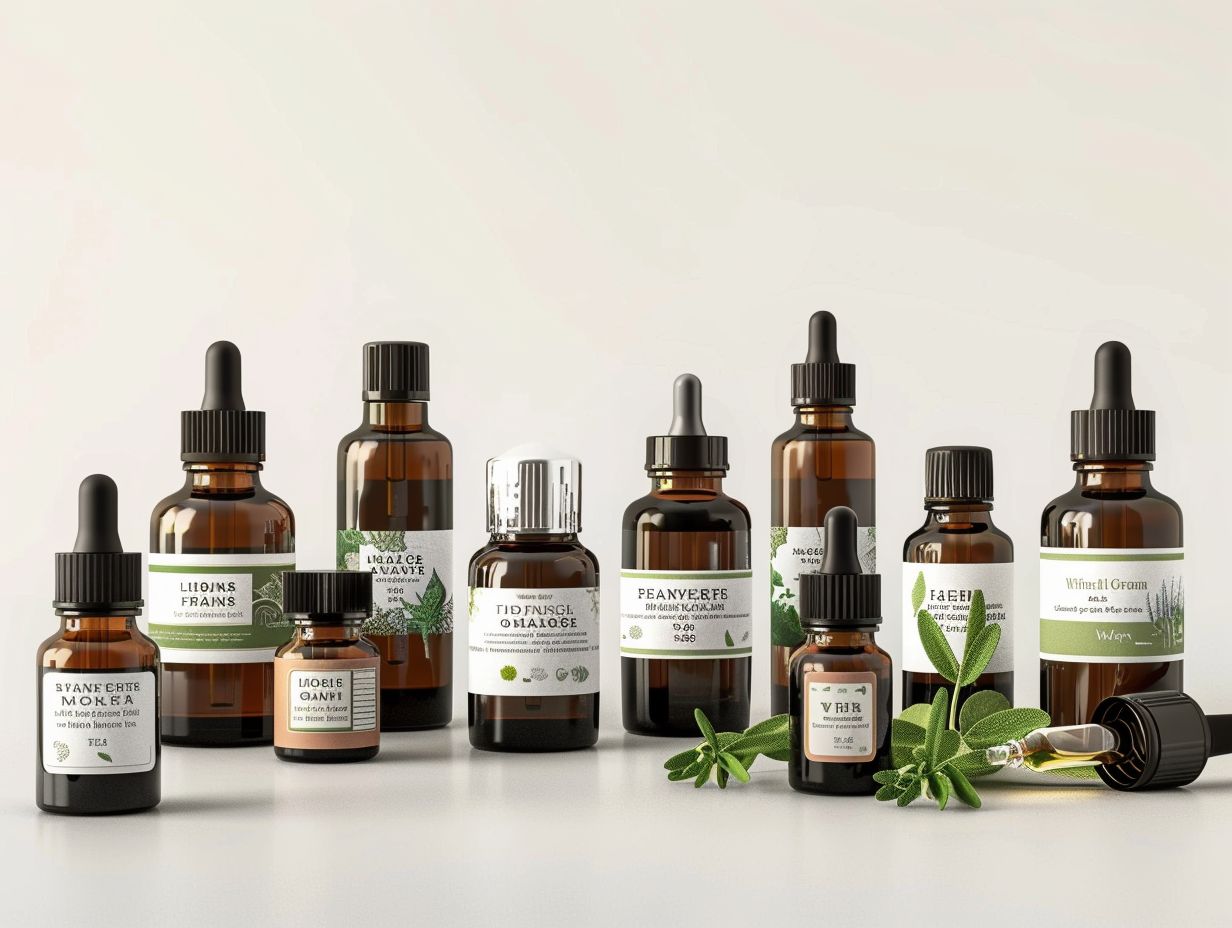
Menthol-infused products can act as effective insect repellents due to their citrus aroma, helping ward off insects like mosquitoes and flies naturally.
This natural insect-repelling property of menthol is particularly beneficial for those seeking alternatives to chemical-laden repellents. The refreshing citrus scent not only keeps insects at bay but also leaves a pleasant fragrance in the air. The use of menthol for repelling insects aligns with the growing trend towards eco-friendly and organic solutions for everyday needs.
Frequently Asked Questions
Which Essential Oils Have Menthol?
1. What is menthol and why is it commonly found in essential oils? Menthol is a natural compound found in various plants, known for its cooling, refreshing, and soothing properties. It is commonly added to essential oils for its therapeutic benefits.
Which Essential Oils Contain High Levels of Menthol?
2. Are there certain essential oils that have higher levels of menthol compared to others? Yes, peppermint, spearmint, and cornmint essential oils are known to have high levels of menthol, making them popular choices for use in aromatherapy and natural remedies.
Which Essential Oils Are Safe to Ingest for Menthol Benefits?
3. Can I safely ingest any essential oil for its menthol benefits? While some essential oils may have menthol, it is important to note that not all essential oils are safe for ingestion. It is always best to consult with a certified aromatherapist or healthcare professional before ingesting any essential oils.
Which Essential Oils Have Menthol for Relieving Headaches?
4. I suffer from frequent headaches, are there any essential oils that have menthol to help relieve them? Yes, peppermint and eucalyptus essential oils are known for their menthol content and have been used for centuries to help relieve tension headaches and migraines.
Which Essential Oils Have Menthol for Soothing Muscle Aches and Pains?
5. I often experience muscle aches and pains, which essential oils should I use that contain menthol for relief? Wintergreen, peppermint, and spearmint essential oils are known for their menthol content and are commonly used in muscle rubs and balms for their cooling and pain-relieving effects.
Which Essential Oils Are Best for Respiratory Congestion Due to Menthol?
6. I have a cold and am experiencing respiratory congestion, which essential oils with menthol can help provide relief? Eucalyptus, peppermint, and spearmint essential oils are known for their menthol content and are commonly used in steam inhalations or diffused to help clear congestion and ease breathing.





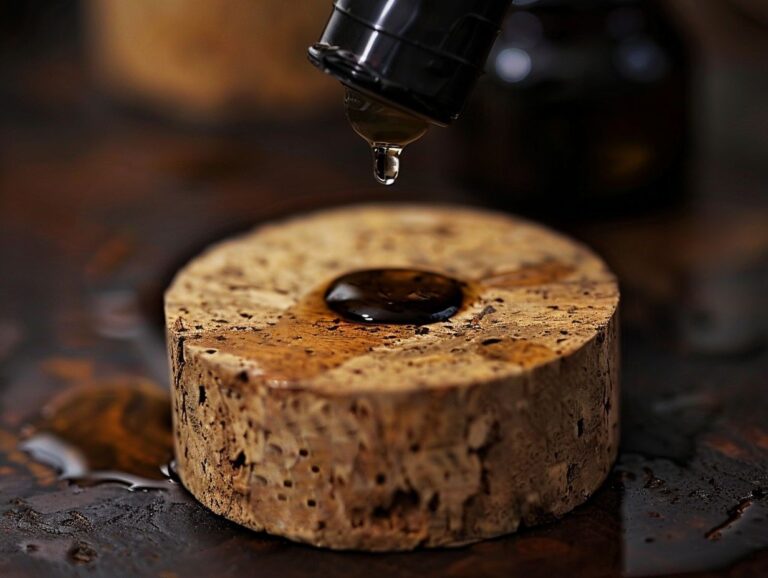

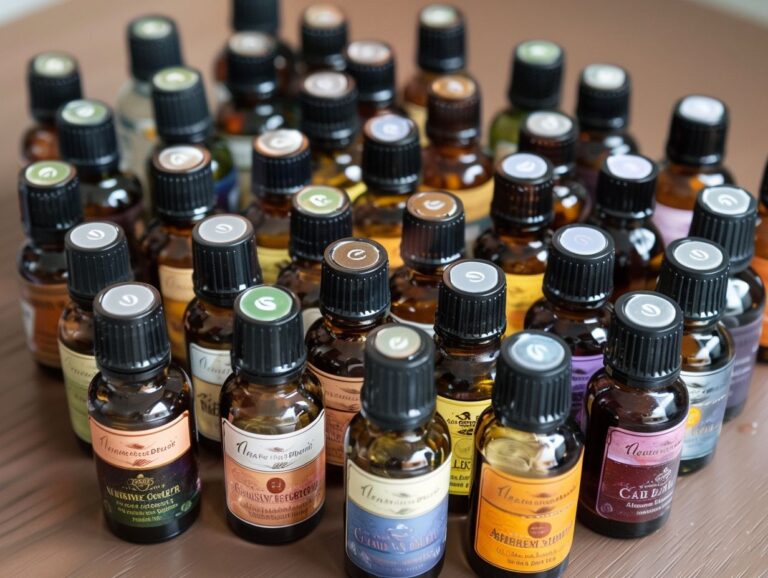
One Comment